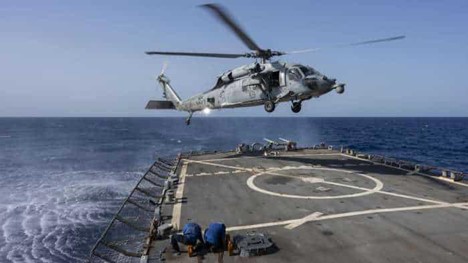Yemen as a nation is becoming stable more or less. Reproductive health is an essential matter in women’s health concerns and in Yemen the war had placed this right beyond the reach of countless ordinary local women.
The representation office of Qatar Red Crescent Society (QRCS) in Yemen has launched a new health project to provide comprehensive health care services for the most vulnerable groups and enhance access to maternal and neonatal health services at several hospitals of Al Hudaydah, Taiz, and Sana’a. The $926,700 project is co-founded by QCRS and the United Nations Population fund (UNPFA). It focuses on isolated with alarming health conditions due to lack of medical resources, growing numbers of internally displaced people (IDPs), and limited access for most girls and women to basic reproductive health services in five districts. To back their capacity, six medical facilities will be supported with medical supplies, operational expenses, and staff remunerations, for one year.
So, Qatar is doing its best to alleviate Yemen’s health crisis. This is good as the problem of reproductive health in the country could endanger the lives of thousands of women. This initiative rases the importance of health care to the disabled, those with special needs and of course women and young girls. The $926,700 as established by the Qatar Red Crescent Society (QCRS) is meant to go to opening and equipping medical facilities at hospitals and clinics that were destroyed during the bombing that took place during the Saudi and Emirati attacks in Yemen on the Houthis. The risk of female and infant mortality can now be alleviated, but there is more to be done. Raising awareness is the key.
Meanwhile the Houthis who have proven to be difficult to beat continue their raids on Ships in the Red Sae.
Two attacks by Yemen’s Houthi rebels targeted ships in the Red Sea on Monday as a new US aircraft carrier approached the region to provide security for the key international trade route that has been under assault since the Israel-Hamas war erupted nine months ago. Three small Houthi vessels, two of which were crewed and another uncrewed, attacked the Panama-flagged and Israeli-owned MT Bently I of the coast of Al Hudaydah, Yemen, according to British and American authorities. The “reported unmanned small craft collided with the vessel twice and the 2 manned small craft fired at the vessel,” The captain later reported three separate waves of missile attacks that exploded in close proximity to the vessel,” the British military’s United Kingdom Maritime Trade Operations centre reported. The vessel conducted self-protection measures, after 15 minutes the small craft aborted the attack.” The captain later reported three separate waves of attacks that exploded in close proximity to the vessel.
So now the Houthis are using uncrewed shipping vessels controlled by remote to damage the ships so they can board. This means the Houthis are becoming very adapt and technology savvy to pirate life. The risk of damage to the ships will prove to be immense. The attacks on the Israeli, American and British ships is understandable. The Israelis have had no qualms about continuing their massacre in Gaza, even if they have had few successes in retrieving the kidnapped hostages. The British and Americans for their part continue to unreservedly support the Israelis with military aid, weapons and equipment. The attacks on the ships have led to feelings of anger and frustration by the western powers.
Washington, London and who ever else is being attacked is unlikely to take these attacks on their or their ally (Israel)’s vessels lying down. There is certain to be reprisals against the Houthis in the future. However, the Houthis are used to a rough and harsh existence.
Later on Monday, in a separate incident off the main coast, the MT Chios Lion, a Liberian-flagged and Marshall islands-owned oil tanker, was attacked by an uncrewed Houthi ariel vehicle, which impacted on the port side causing some damage and light smoke,” the UKMTO said. Both ships and all crew were reported safe, the UKMTO said in a warning to mariners. Late Monday, the Houthis claimed responsibility for the attacks on Bentley I and Chios Lion. Early Tuesday, the US Central Command confirmed the attacks and identified the names and flags of the ship. “This continued reckless behaviour by the Iranian-backed Houthis threatens regional stability and endangers the lives of mariners across the Red Sae and Gulf of Aden,” a Central Command statement said.
The need to protect international maritime waters is essential to having a strong navy. Patrolling the saes such as the Gulf of Aden and the Arabian Sea should be the paramount of regional navies to protect against piracy, raiding and attacks by local groups. The Houthis however have forged themselves into a dangerous regional power in Yemen that could undermine the sovereignty of the nations bordering Yemen. These are Saudi Arabia and Oman. Water bound traffic such as oil carrying cargo ships are also under threat. Iran which closely backs the Houthis because they are of the Shi’ite Zaidi sect needs to exert its influence over the group, possibly by with holding arms and finance.
Yemen is in dire straits; the country has been in an impossible state since the beginning of the Arab Spring in 2011. The suffering endured by the most vulnerable such as women and children is incomparable. The Houthis for their part need to come to the negotiating table and explain their terms.
Article written by:
Yacoob Cassim
Journalist at Radio Al Ansaar






